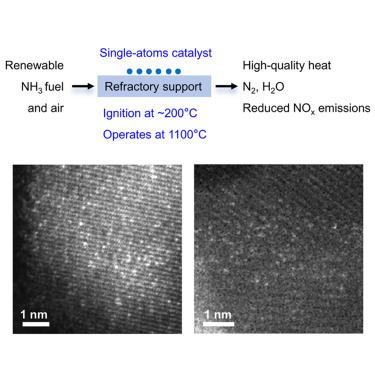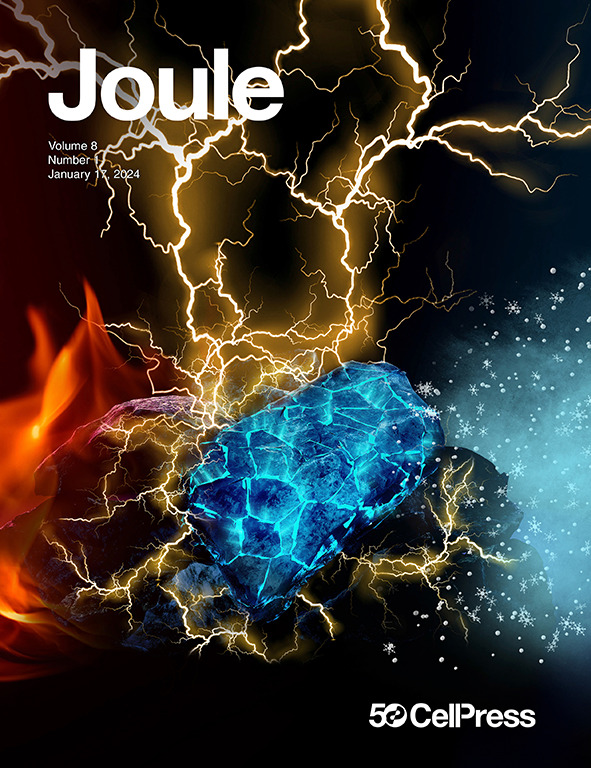Single-atom catalysts enabled catalytic ammonia combustion at 1,100°C
IF 35.4
1区 材料科学
Q1 CHEMISTRY, PHYSICAL
引用次数: 0
Abstract
Green ammonia (NH3) is a promising renewable fuel but suffers from having poor combustion characteristics. High-temperature catalytic NH3 combustion (HT-CAC) provides an attractive solution to improve the combustibility of NH3 and allows high-quality heat to be extracted with reduced harmful emissions. Achieving HT-CAC is a difficult task due to (1) demanding stability requirements of catalysts and (2) potentially high NOx emissions. Here, we report that atomically dispersed platinum (Pt) on 10% zirconium dioxide (ZrO2)-aluminum oxide (Al2O3) can facilitate the HT-CAC process. The catalyst ignites NH3 combustion just above 200°C and has excellent stability when operated at 1,100°C. The presence of the catalyst also reduces the NOx emissions to around 50 ppm without detectable NH3 slip. This work shows that combining single-atom catalysts with refractory support materials is an effective strategy for designing catalysts for HT-CAC, which will in turn help to decarbonize many “hard-to-abate” sectors, such as industrial heating.


单原子催化剂能在1100℃下催化氨燃烧
绿色氨(NH3)是一种很有前途的可再生燃料,但其燃烧特性较差。高温催化NH3燃烧(HT-CAC)提供了一个有吸引力的解决方案,以提高NH3的可燃性,并允许提取高质量的热量,减少有害排放。实现HT-CAC是一项艰巨的任务,因为(1)催化剂的稳定性要求很高,(2)潜在的高NOx排放。在这里,我们报道了原子分散铂(Pt)在10%二氧化锆(ZrO2)-氧化铝(Al2O3)上可以促进HT-CAC过程。催化剂在200°C以上点燃NH3燃烧,在1100°C下工作时具有优异的稳定性。催化剂的存在还可以将NOx排放量降低到50ppm左右,而不会出现可检测到的NH3漏失。这项工作表明,将单原子催化剂与耐火支撑材料相结合是设计HT-CAC催化剂的有效策略,这将有助于使许多“难以减碳”的部门脱碳,例如工业加热。
本文章由计算机程序翻译,如有差异,请以英文原文为准。
求助全文
约1分钟内获得全文
求助全文
来源期刊

Joule
Energy-General Energy
CiteScore
53.10
自引率
2.00%
发文量
198
期刊介绍:
Joule is a sister journal to Cell that focuses on research, analysis, and ideas related to sustainable energy. It aims to address the global challenge of the need for more sustainable energy solutions. Joule is a forward-looking journal that bridges disciplines and scales of energy research. It connects researchers and analysts working on scientific, technical, economic, policy, and social challenges related to sustainable energy. The journal covers a wide range of energy research, from fundamental laboratory studies on energy conversion and storage to global-level analysis. Joule aims to highlight and amplify the implications, challenges, and opportunities of novel energy research for different groups in the field.
 求助内容:
求助内容: 应助结果提醒方式:
应助结果提醒方式:


